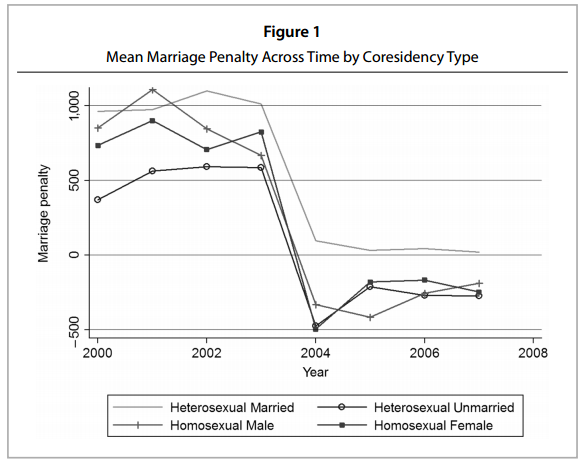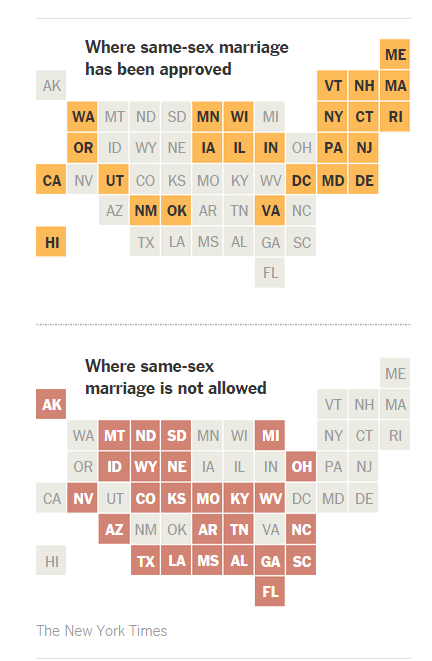One of the benefits of Monday’s Supreme Court decision that paved the way for same-sex marriage in five states is clearly fiscal. Not for the couples, of course, who are likely to get slapped with both a marriage tax and an AMT tax if their incomes meet a certain threshold, although they will benefit from certain financial protections afforded married people.
So, to all the gay couples in Indiana, Oklahoma, Utah, Virginia and Wisconsin who are planning to tie the knot – welcome to the high-tax world of marriage. Your love can help close the budget gap in your state and close the country’s deficit. It may even pay for one those $1.2 million Tomahawk missiles that we’re lobbing at ISIS. Maybe this is what the defense and marriage act is all about.
In 2004, the Congressional Budget Office issued a report claiming, “In some cases, recognizing same-sex marriages would increase [Federal] outlays and revenues; in other cases, it would have the opposite effect…. On net, those impacts would improve the [Federal] budget’s bottom line to a small extent: by less than $1 billion in each of the next 10 years.”
Money flowing into state and federal bank accounts isn’t the only benefit of same-sex marriage. All the benefits of a stable, committed relationship make sense for communities that value home ownership, stability, and participation in community affairs without the stigma of having a second-class relationship.
The other fiscal upside is a reduction in the outlays states make to unmarried singles — gay or straight — because of minimal incomes and other needs. If children are involved, the benefits are even more obvious.
More than 40 percent of all people born in the U.S. today are born to single parents. If you want to know what this means to social mobility, income inequality, jobs, entitlement funding, and the like, just look at this data, which cuts across all ethnic groups. The data are unequivocal that children are far more likely to succeed in two-parent households. So the Court’s decision today should help build a stronger economy tomorrow.
Top Reads from The Fiscal Times:






